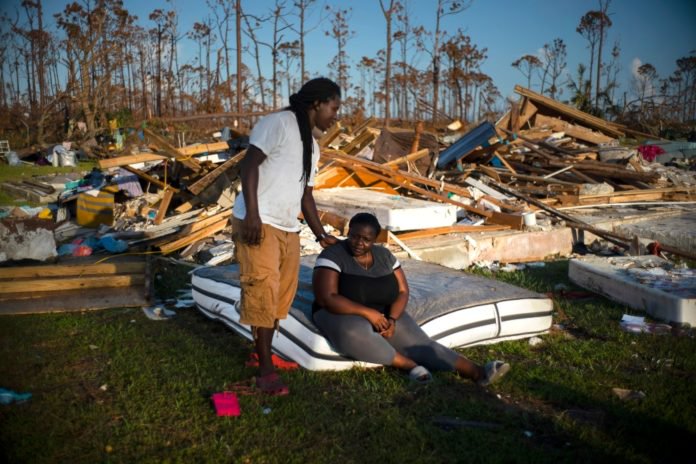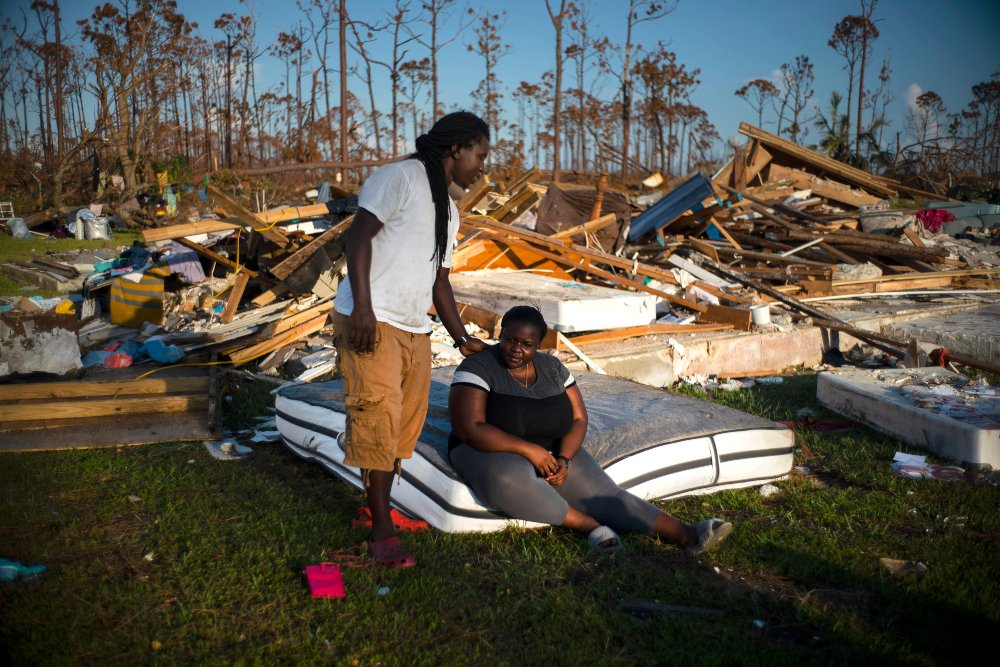[ad_1]

Lia Head is on a mission. After the devastation of Hurricane Dorian ravaged her home country last week she sprang into action.
With a network of support staff, she and her fellow organizer Gina Knowles, galvanized donations through their HeadKnowles Foundation which they launched in 2015 in response to the aftermath of category four Hurricane Joaquin. The two determined women were able to bring much-needed help to families in the central and southern Bahamas in the aftermath of Joaquin and are steadfastly trying to do the same after witnessing the catastrophe left by Dorian.
Hurricane Dorian pummeled Abaco and Grand Bahama Islands for two days, with 30 inches of rain, storm surges as high as 23 feet in some areas and 200 mile per hour winds.
The Red Cross says more than 13,000 homes – nearly half the number on those two islands – were damaged or completely destroyed.
Head admits that the aftermath of Dorian is different leaving thousands of people missing, entire neighborhoods destroyed, homes and businesses obliterated, shipping containers and boats hurled inland. Some airports are completely under water.
“This was an apocalyptic event of epic proportion,” Head told theGrio. “Entire swaths of our island have been swallowed by the ocean.”
READ MORE: Hurricane Dorian waves brings in bricks of cocaine at Florida beaches
Kim Mullins, a resident of Grand Bahama Island, told GMA she lived through Hurricane Floyd in 1999, Hurricanes Frances and Jeanne in 2004, Hurricane Wilma in 2005, Hurricane Matthew in 2016 and Hurricane Irma in 2017. In her extensive experience, Hurricane Dorian is the most menacing beast yet.
Setting up a base of operation in Ft. Lauderdale, Head worked tirelessly to direct a group of 12 committed volunteers to marshal resources like food, clothing and supplies to be sent to the Bahamas via a small fleet of planes and boats, even as she received harrowing reports about the fate of her own family.
Head’s sister was forced to move between three shelters and there were reports of a niece and nephew trapped in an attic during the storm’s 30-foot surge while she has also heard that her mother’s home was completely destroyed.
READ MORE: Deadly Hurricane Dorian parks itself over the Bahamas
“We’re the make-it-happen crew,” Head joked. “This is the worst I’ve ever seen and I’ve done a lot of work around the world. I was there day two [after the hurricane hit] in the air over the Abacos to get visuals and pictures.”
Head touched down in Nassau to begin working with World Central Kitchen with José Andrés to feed people who had lost everything.
Shauna Bain Smith is one of the HeadKNowles volunteers who flew from Los Angeles to Florida to help because she understood the scope of the devastation.
“We have 700 islands, but our total population is less than 400,000 souls, and we’re all actually connected through one degree,” Bain Smith told theGrio. “Someone is going to be related to someone who may have perished or lost everything. Islands only have so many resources. We all grew up together.”
And that’s why Head wants people to understand that evacuating the island wasn’t an option for many people and most did what the government told them to do.
READ MORE: Bahamas evacuees, fleeing Dorian’s devastation, forced off ferry headed to Florida
“When you live on an island and you already don’t have many resources, you can not evacuate,” she said. “You can’t purchase a plane ticket. You don’t have access to a boat. You don’t have relatives with means where you can go stay. They didn’t have the option of evacuation. You don’t have the same range of options.”
Now, it’s time for the most heartbreaking work as the water continues to recede and reveal all that has been lost.
Bahamas Health Minister Duane Sands announced on Monday that the official death toll from Dorian had risen to 50. According to the Royal Bahamas Police Force, 42 bodies have been found on Abacos. The other eight bodies were found in Grand Bahama.
“The body count is ridiculous,” Head said solemnly. “The water is receding and now we’re seeing bodies. The death toll is far more than is being reported. People are on the ground are seeing the death count.”
Head says victims need food, water and other essentials as well as building materials and gas for the planes and boats that are transporting supplies to the islands.
To help with relief efforts, the HeadKnowles Foundation has set up an Amazon Wish List and a GoFundMe campaign to raise money for families and to support the rebuilding efforts.
[ad_2]
Source link

